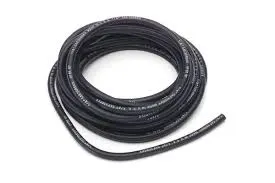335345435
Aug . 11, 2024 11:04 Back to list
Reliable Suppliers of High-Quality Hydraulic Hoses for Forklift Applications and Machinery Support
The Importance of Quality Hydraulic Hoses for Forklifts
Forklifts are essential machines in various industries, facilitating the movement of goods and materials in warehouses, construction sites, and manufacturing plants. One of the critical components that contribute to the efficiency and safety of forklifts is the hydraulic hose. As the primary conduit for hydraulic fluid, the hydraulic hose plays a pivotal role in ensuring that forklifts operate smoothly and effectively. This article will explore the significance of selecting a reliable forklift hydraulic hose supplier and the factors to consider when making this important decision.
Understanding Hydraulic Hoses
Hydraulic hoses are designed to carry pressurized fluid from one component to another, enabling the control of various functions, such as lifting and tilting. The effectiveness of a forklift’s hydraulic system hinges on the quality and durability of these hoses. A compromised hose can lead to significant operational issues, such as reduced lifting capacity, slow response times, or even complete failure of the hydraulic system. Therefore, investing in high-quality hydraulic hoses is paramount for maintaining the operational efficiency of forklifts.
Choosing the Right Supplier
When it comes to sourcing hydraulic hoses for forklifts, partnering with a reputable supplier can make all the difference. Here are several factors to consider when selecting a forklift hydraulic hose supplier
1. Quality of Materials The best suppliers offer hydraulic hoses made from high-quality materials that can withstand the demanding environments in which forklifts operate. Look for hoses that are resistant to abrasion, extreme temperatures, and chemical exposure. A supplier that prioritizes quality materials is likely to ensure that their hoses have a longer lifespan.
forklift hydraulic hose supplier

2. Product Range A diverse product range is a good indicator of a supplier's expertise. A supplier should provide a variety of hydraulic hoses tailored to different forklift models and applications. This not only allows for customization but also ensures that the right hose is available for specific needs.
3. Certification and Standards It’s essential to verify that the supplier’s products meet industry standards and certifications. Compliance with standards such as SAE (Society of Automotive Engineers) ensures that the hydraulic hoses are safe and reliable for use.
4. Technical Support and Advisory The best suppliers provide more than just products; they offer technical support and expert advice. Having access to knowledgeable staff who can assist with selecting the right hoses for specific applications is invaluable. This can help prevent costly mistakes and downtime.
5. Customer Service Consider the supplier’s customer service reputation. A supplier who values their customers will be responsive to inquiries, offer flexible shipping options, and provide after-sales support. This can enhance the overall purchasing experience and ensure continued satisfaction.
6. Pricing and Warranty While price is an important factor, it should not be the sole determinant. A higher price often reflects better quality and reliability. Look for suppliers that offer reasonable prices along with warranties or guarantees on their products, providing peace of mind regarding your investment.
Conclusion
In conclusion, the hydraulic hose is a vital component of any forklift, directly impacting its performance and reliability. Selecting a reputable forklift hydraulic hose supplier is essential for ensuring quality, safety, and efficiency. By considering factors such as product quality, range, compliance with standards, technical support, customer service, and pricing, businesses can make informed decisions that will lead to optimized forklift operations. Investing in quality hydraulic hoses from a trusted supplier is not just a transaction; it is a commitment to safety, efficiency, and long-term operational success.
-
SAE 100 R17 Black Smooth Cover Hydraulic Hose
NewsMar.07,2025
-
SAE 100 R17 Black Smooth Cover Hydraulic Hose
NewsMar.07,2025
-
SAE 100 R17 Black Smooth Cover Hydraulic Hose
NewsMar.07,2025
-
SAE 100 R17 Black Smooth Cover Hydraulic Hose
NewsMar.07,2025
-
SAE 100 R17 Black Smooth Cover Hydraulic Hose
NewsMar.07,2025
-
steel wire braided hydraulic hose
NewsMar.07,2025



